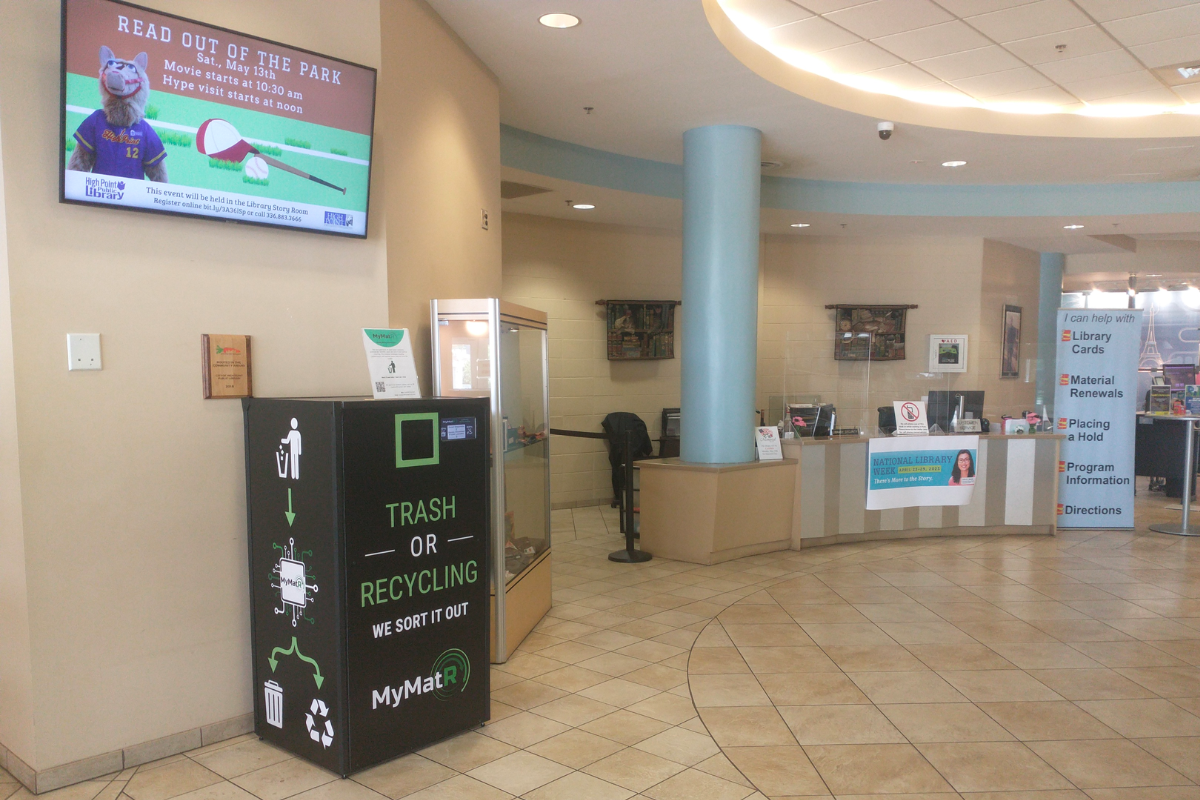
An AI-powered sorting bin from MyMatR is deployed in a pilot program at a public library in High Point, N.C. | Photo courtesy MyMatR
Consumer education is a traditional way to reduce contamination, but the founder of startup MyMatR is combining it with AI to offer a “smart” self-sorting bin for public spaces.
John Starke, founder of MyMatR, said the first step to increase recycling rates is to offer twin-bin systems in public spaces, one for trash and one for recycling, but there will always be people who don’t use the system and put recyclables in the trash. That’s where the smart bins come in.
“I think education is very important in the realm of recycling, I really do. What I think is far more important is our infrastructure and our infrastructure at the source of disposal is so incredibly critical,” he said. “Let’s use technology hand-in-hand with education to make things better.”
MyMatR is an automatic sorting waste container meant for city streets, public offices, airports and other public spaces.
“It’s designed to be that next generation of waste container, from dumb trash cans to smart trash cans,” Starke said.
The bin works by taking a photo of items thrown into it, then using AI to identify the item and decide if it should go in the waste side or the recycling side. It’s highly customizable, Starke said, and cities can program the AI for whatever items they accept for recycling. They can also then have easy access to data on what is being placed in the bins. The average sorting accuracy of a MyMatR unit is 90%, and it takes about three seconds for the unit to decide how to sort an item.
If multiple items are put in at the same time, the system will make the decision based on customer guidelines. The customer decides if they would rather maximize landfill diversions or eliminate contamination.
The bins also have fullness detection sensors and embedded display screens that can educate users on if the object they just put in was recyclable or not. The bins can also be added onto, Starke said, such as adding QR codes or “gamifying” recycling by giving people points for using it.
“It’s a way to educate and give back to those that care, but since the EPA says the national recycling rate is 32%, there’s a large part of people who don’t care,” he said. “So this puts the infrastructure in place” to reduce missorting.
Looking forward, Starke said he plans to make a solar powered model and wants to expand across America and then eventually go global.
MyMatR is in its growth phase, Starke said, and is one of a few automatic waste sorting companies in the nation.
Right now, MaMatR is working with Coca Cola Consolidated, a Volvo manufacturing plant and a BMW plant in South Carolina, the University of South Carolina, Clemson University and the High Point public library in North Carolina. The company is based in Raleigh, N.C.
“It’s your standard waste container we are taking to the next level,” he said.

